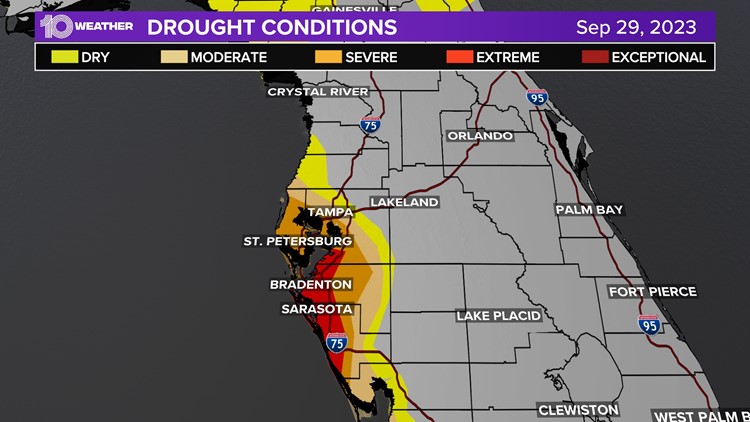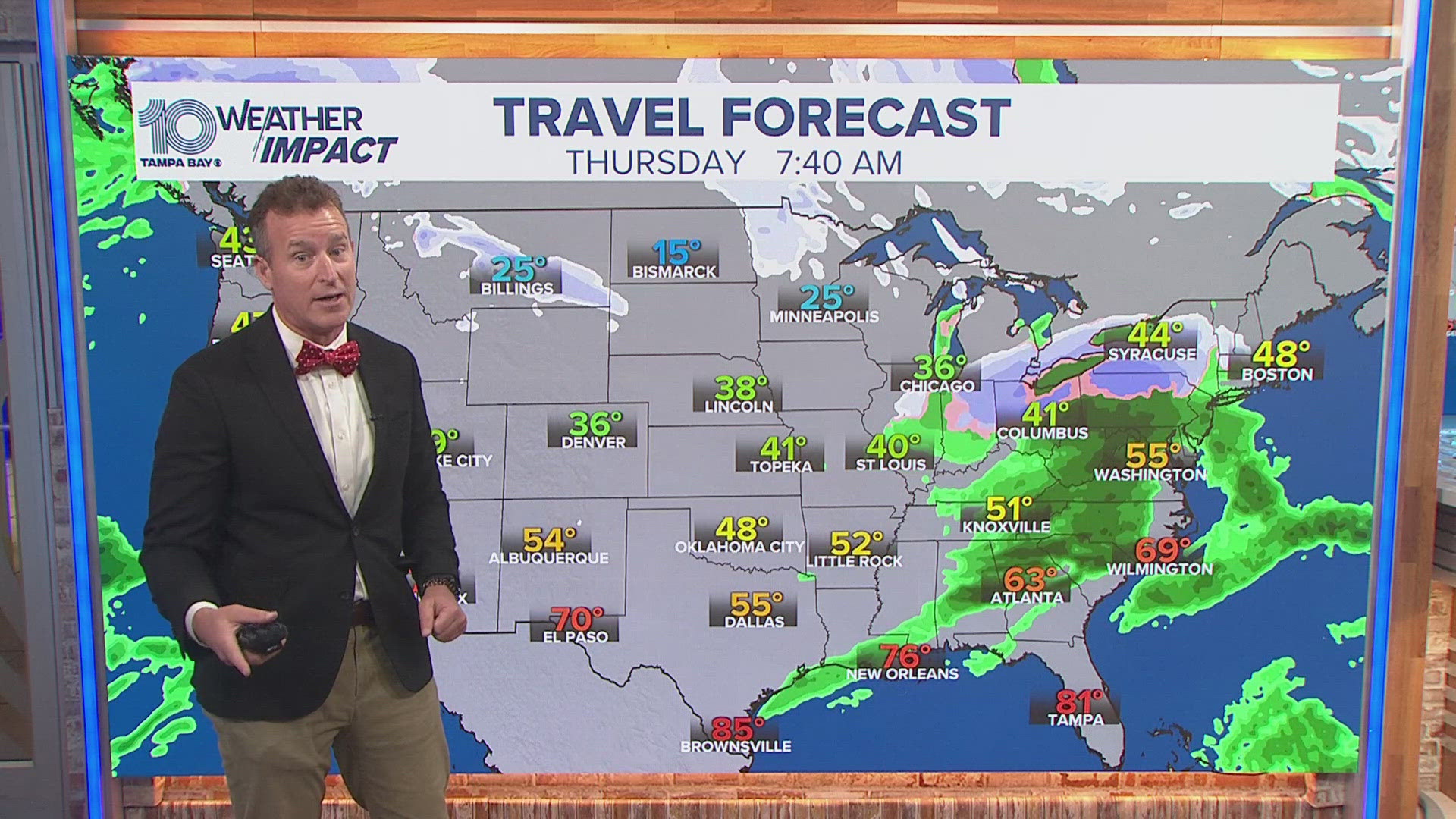TAMPA, Fla. — We're less than two weeks away from the official end of the 2023 rainy season for the Tampa Bay area. Our typical rainy season runs from May 25 to Oct. 10. These are just rough dates and general guidelines for when our pattern typically starts to change.
Why is this important? Because we still need a lot of rainfall across west-central Florida! We are running over a foot of rainfall below average for the year.
When you break it down month to month, you will see that only two months this year, May and August, gave us above-average rainfall. The other seven months produced well below-average rainfall.
That is why most of the year we have seen some level of drought conditions across the Tampa Bay region.

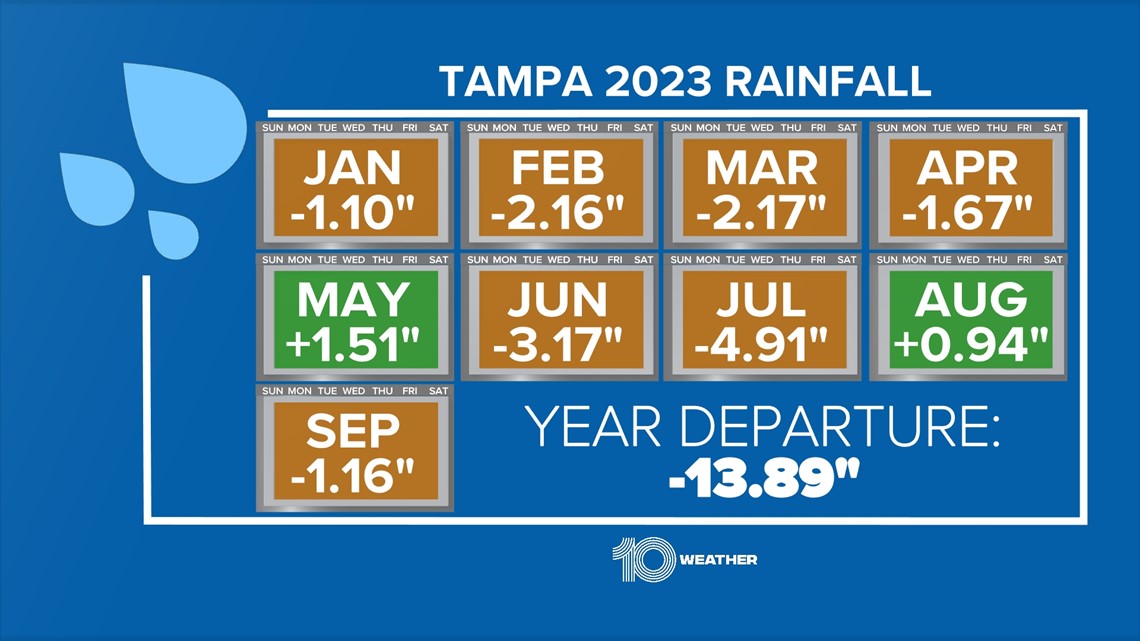
The latest drought monitor that came out this week still shows an extreme drought for parts of Manatee and Sarasota counties. Parts of Hillsborough and Pinellas counties are under a severe drought. Those drought conditions quickly improve as you head inland and north.
In fact, most inland and Nature Coast counties don't have any drought conditions at all.

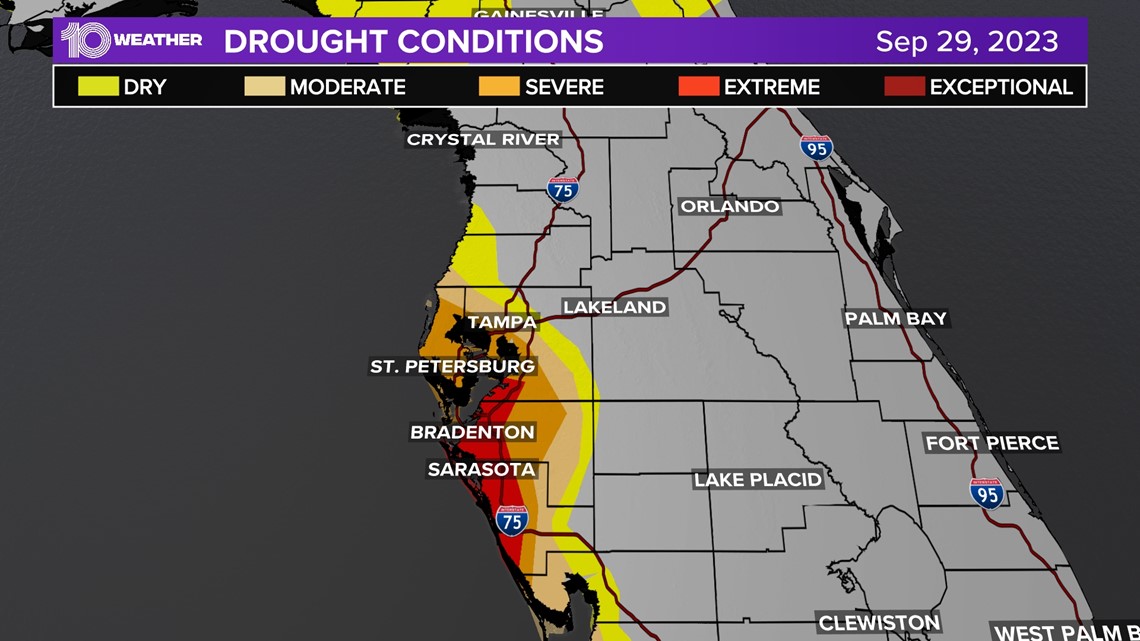
As of Sept. 29, Tampa is 13.89 inches below average for rainfall this year. It gets even worse as you head across the Sunshine Skyway to Sarasota. Get this, in Sarasota the rainfall is a massive 19.74 inches below average for the year! That is why that area is under an extreme drought.
Just a bit further inland toward Winter Haven, rainfall totals are actually close to average if not slightly above average for the year! This is due to the persistent westerly flow that we saw most of spring into early summer which kept the highest rain chances inland and left coastal areas dry.

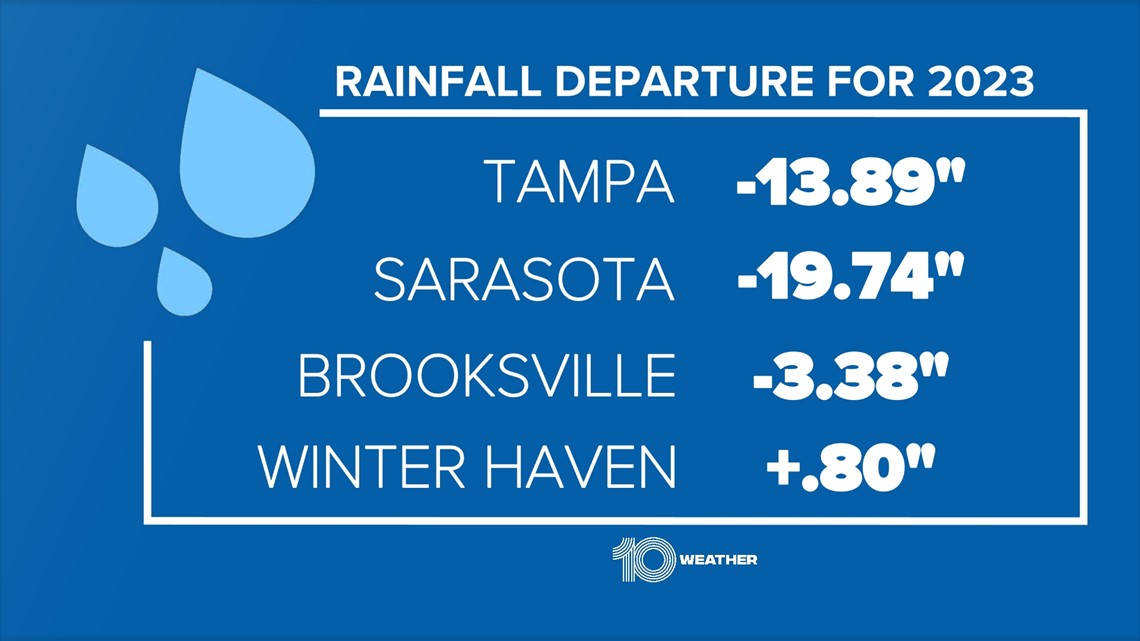
There is good news: With a stronger El Niño forecast to continue throughout winter, most of Florida will likely see above-average rainfall throughout the winter months. This is due to the subtropical jet setting up across the South and Southeast keeping a more active storm track for low-pressure systems and waves of energy.
If we do not catch up in the rainfall department this fall into winter, we could be looking at an active brush fire season come next spring. It will be something to keep an eye on early next year.

